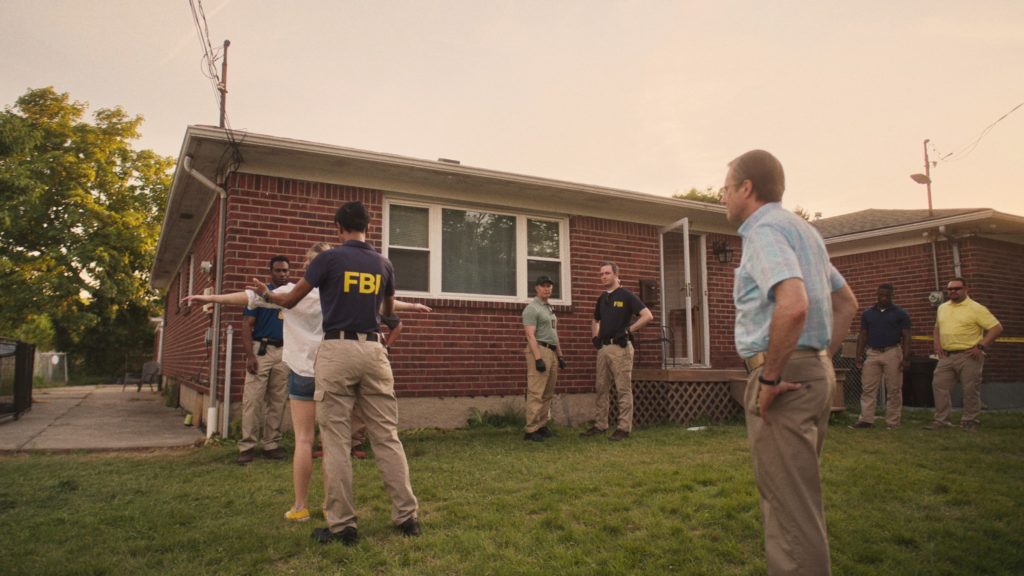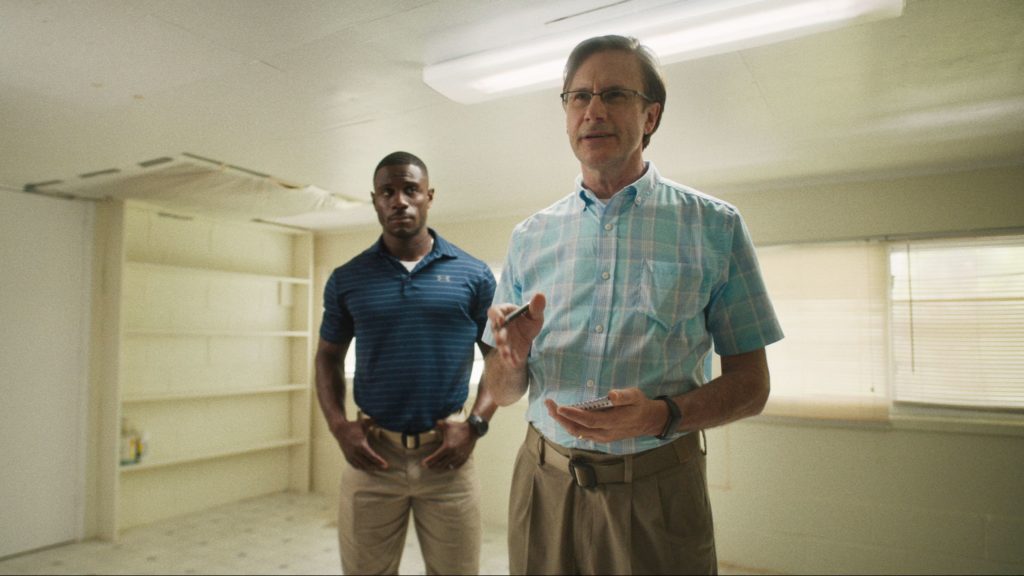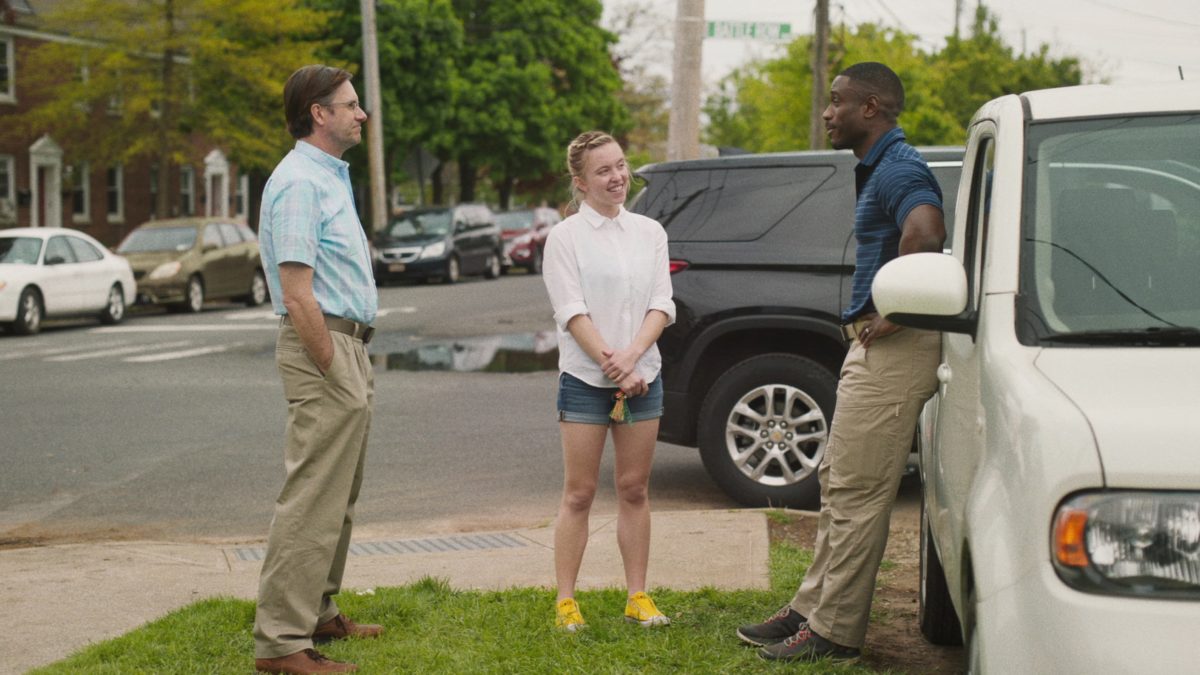Reality is a fascinating piece of docudrama by Tina Satter, adapting her stage play to film. The movie captures in near-real time the 2017 house search and arrest of Reality Winner, the headline-grabbing whistleblower who shed light on Russia’s interference in the 2016 US Presidential elections.
We learn from some text at the start of the film that its script is a precise recreation of the audio transcript from the incident. The film takes place entirely on a replica of Winner’s small rural home, mostly in two locations, the yard and a back room.

Sydney Sweeney delivers an outstanding performance as Winner. She does a great job capturing someone trying to keep composure but falling apart as her false alibis crumble one at a time. Sweeney is known for playing characters with sex appeal, so it’s refreshing to see her delivering a “pure” piece of acting. She leans slightly more towards affected showiness in her expressions and line readings than I might have preferred, but it’s still a strong performance that does a great job conveying Winner’s humanity and complexity.
The pair of FBI agents tasked with interviewing her are played by Merchant Davis and Josh Hamilton, and both are also very good. Hamilton in particular shines in his role, walking the fine line between gentle warmth and aggression during the interrogation, gradually wheedling confessions out of Winner.

The film’s power lies in its specificity. The movie spends much of its time focusing on minute logistics of a home search and an interview, generating tension in the slow boil. The procedural nature of the story is immersive and compelling. The agents and Winner spend significant portions of the screenplay debating how to deal with a prickly cat, the feeding of Winner’s dog, figuring out a suitable room for the interrogation, and getting glasses of water.
Reality is at its most intriguing when it is non-political and simply about a high-stakes yet mundane police operation. Inevitably, it must focus on the specifics of the case and its political implications — we are hearing the real transcript of the interview — and the movie loses some steam. The movie also intersperses some footage of news headlines and TV interviews once Trump and Russia come up, further taking you out of the tense moment. Politically, Reality neither demonizes nor valorizes Winner, instead conveying her as a human, complex, and slightly strange woman.

One aspect of the film that simply did not work for me was the use of techno-distortions when the narrative reaches the redacted parts of the transcript. It gives the film a somewhat uncanny, conspiracy-theory undertone that jars its otherwise minimalist, clinical aesthetic. I’m not quite sure what the movie should have done to handle the redactions, but I don’t think this was the right choice.
Overall, though, Reality is a compelling exercise, one that drew me in far more than I initially expected. Anchored by a set of strong performances, particularly from Sweeney, the film offers a glimpse into a nerve-wracking episode of recent history. It uses the small confines of its premise to deliver a chilling yet intimate study of human nature under duress. It’s a bit too small-scale to really linger, but I found myself sucked in for the duration.
Is It Good?
Good (5/8)
Dan is the founder and head critic of The Goods. Follow Dan on Letterboxd. Join the Discord for updates and discussion.


2 replies on “Reality (2023)”
I should watch this, considering Reality Winner’s a hero. I mean, I watched Citizenfour and that was about a newly-naturalized citizen of a fascist country presently engaged in war crimes.
I came away from Reality thinking of her as an unusual and principled person who did at least one heroic thing. Is that different from a “hero”? The transcript goes out of its way to highlight that evidence points to this being something she did on a frustrated whim. Anyways, it’s a compelling small-scale character portrait.